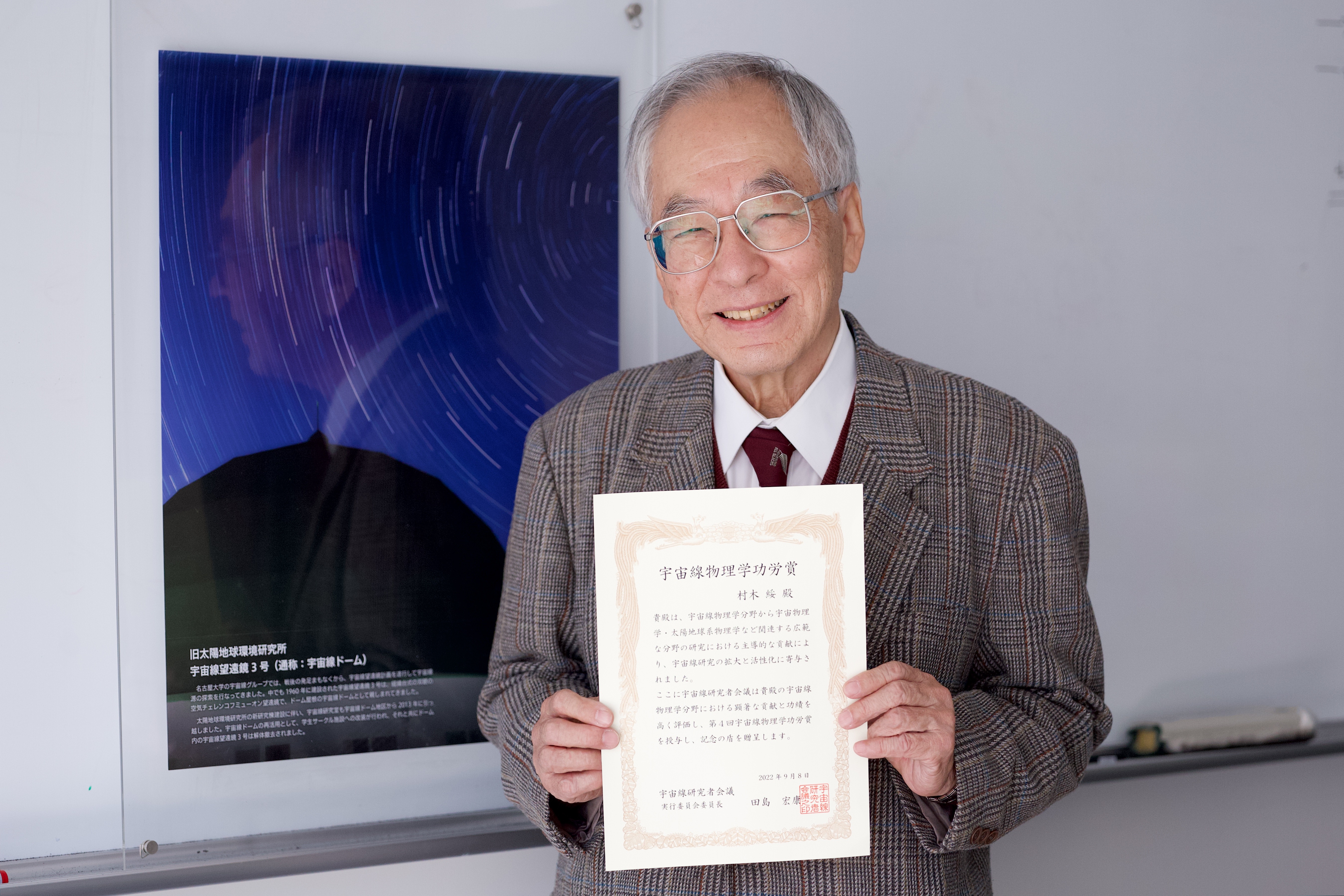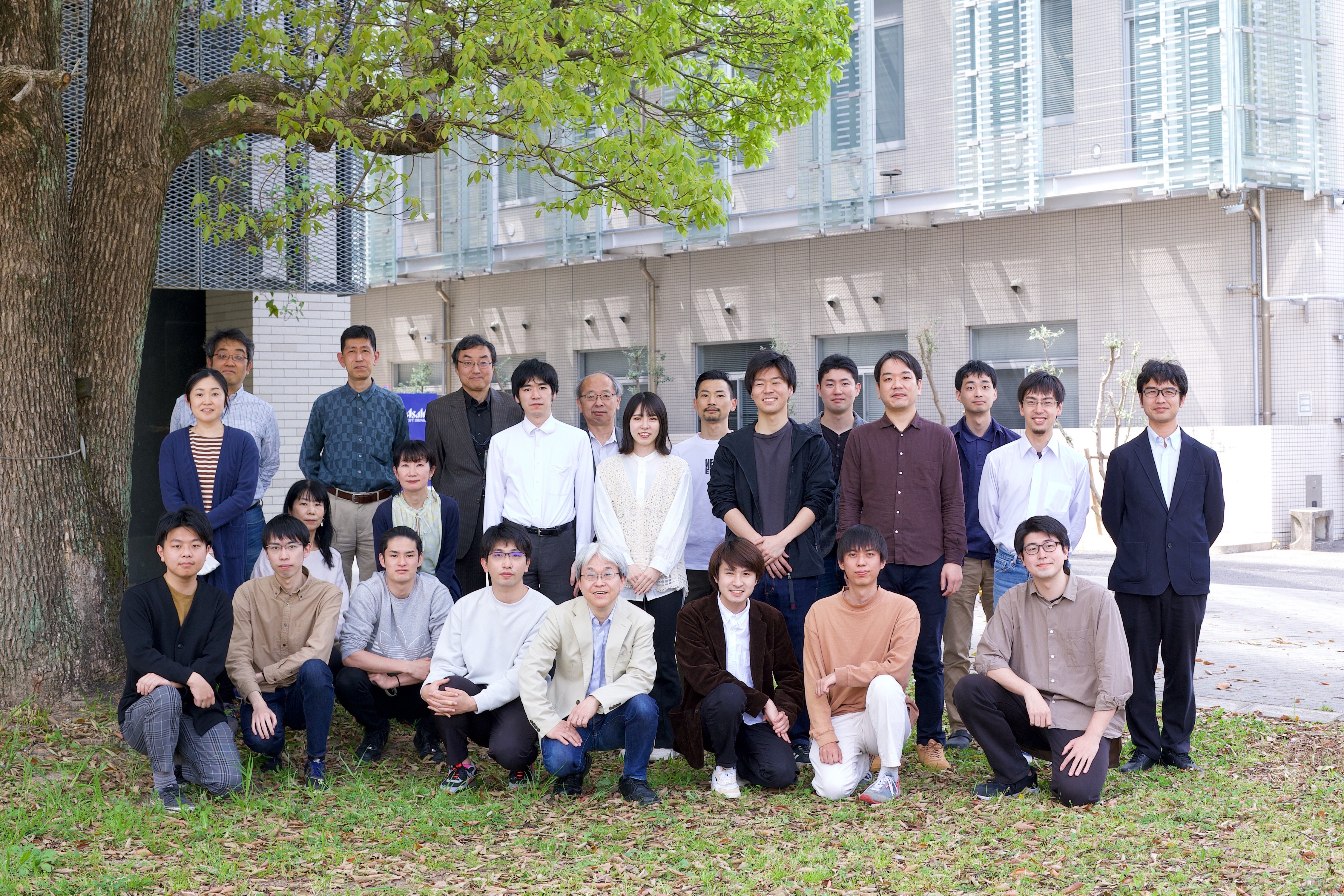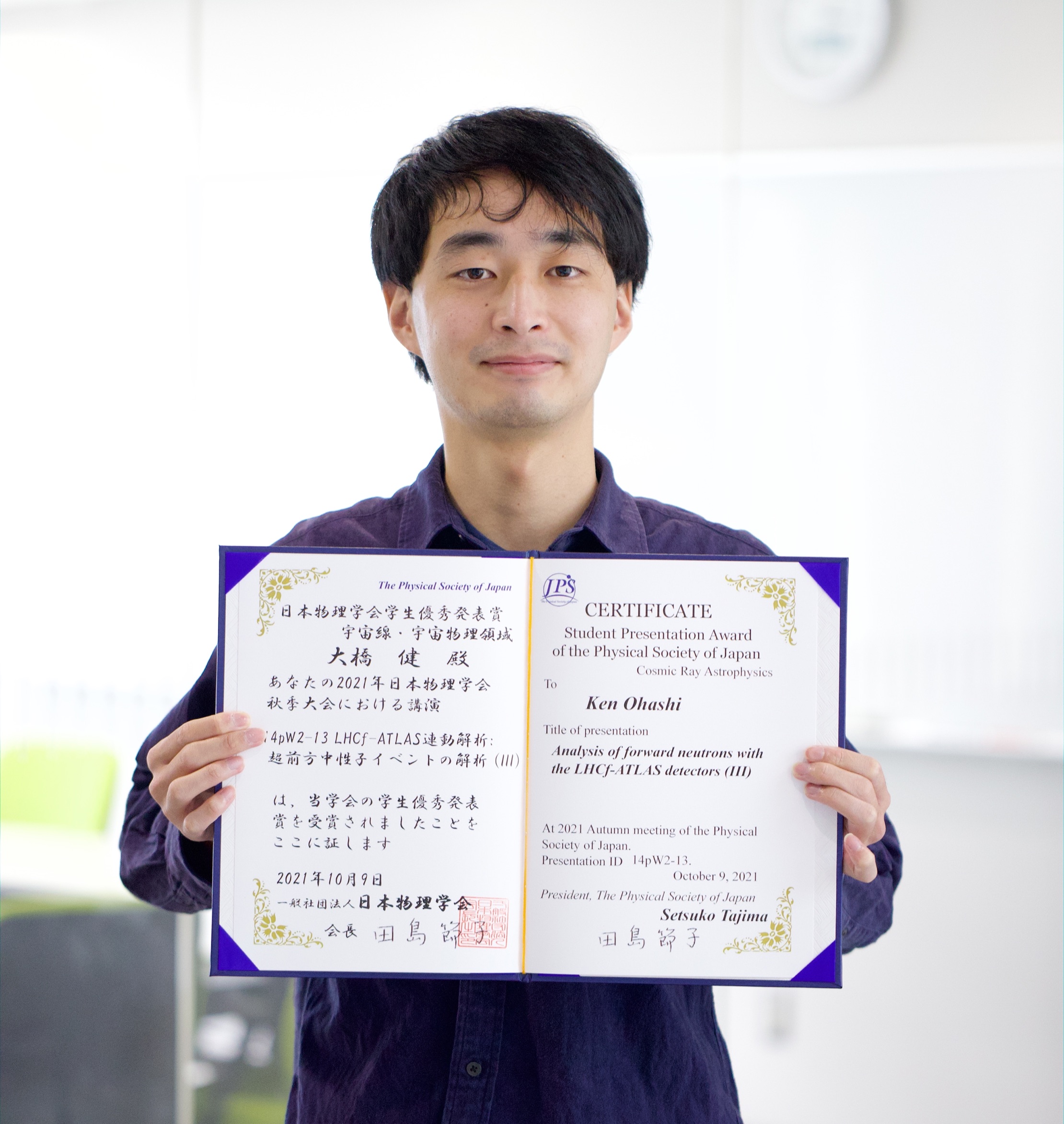Recent Posts
-
Prof. Emeritus Yasushi Muraki awarded the 4th Distinguished Service Award in Cosmic-ray Physics ()
-
New CR Members of FY2022 ()
-
Ken Ohashi awarded the Student Presentation Award of the Physical Society of Japan ()
-
Annual Research Report of FY2020 ()
-
Prof. Fumio Abe and Yuichiro Asakura awarded PASJ Excellent Paper Award ()
Visiting Assoc. Prof. Fumio Abe and Yuichiro Asakura, an alumni of the CR group, were awarded the PASJ Excellent Paper Award 2019. They contributed to a study of the relation between a gravitational wave event GW170817, a neutron-star–neutron-star merger, and nucleosynthesis by electromagnetic observations with the MOA II telescope.
Cosmic-ray Research Division (CR Lab)
The Division for Cosmic-Ray Research at the Institute for Space–Earth Environmental Research, Nagoya University accepts graduate students as the Cosmic-Ray Physics Laboratory (CR Laboratory) in the Division of Particle and Astrophysical Science, Graduate School of Science. The research topics encompass particle physics, solar physics, exoplanet exploration, the effects of cosmic rays on the Earth’s environment, and gamma-ray astrophysics, based on experimental and observational cosmic-ray physics.
For more information about our laboratory, please see “About the Cosmic-ray Research Division”, and for information about the graduate school entrance exam, please see “Graduate School Guide”.
The laboratory is managed by nine faculty members who conduct a wide range of research topics. This is a large group with an average of more than 20 undergraduate and graduate students, and is responsible for mentoring fourth-year undergraduate students, as well as those in the Master’s and Doctoral programs. For more information about the faculty members, please refer to “Members”.
Our Research
The CR Lab is working on many experimental projects in various research fields.
- LHCf Experiments
- The LHCf experiment uses the LHC accelerator to measure the cross sections of neutral particles produced by collisions between protons and nuclei, and to reduce the model uncertainties of electromagnetic showers produced by interactions of cosmic rays with the atmosphere, thereby revealing the mysteries of the mass composition of cosmic rays.
- Solar-Neutron Observations
- Studies of the proton acceleration mechanism in solar flares
- Neutrino Studies
- Search for high-energy cosmic neutrinos
- Radiocarbon (14C)
- Deciphering the ancient solar activity cycle
- Direct Dark-Matter Search
- Direct dark matter detection
- Gamma-ray Astrophysics
- We are studying cosmic-ray acceleration by supernova remnants and cosmic-ray interactions with interstellar matter, and searching for dark matter using the Fermi satellite. We are also developing instruments for the future Cherenkov Telescope Array project.


